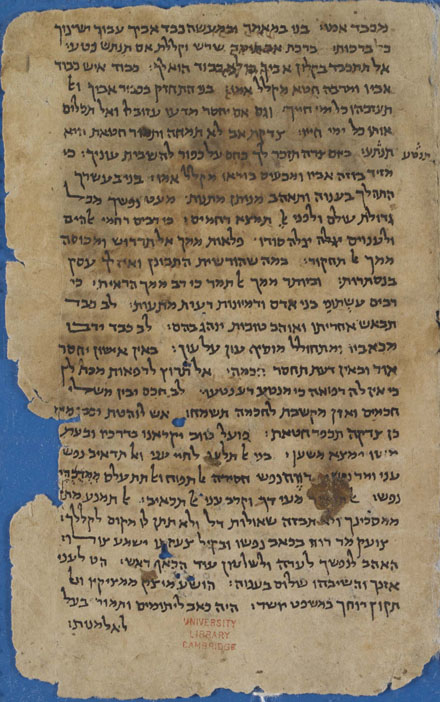The news came out this weekend that Dr. Philip Ryken will be the Eighth President of Wheaton College. I met Phil while at Oxford, he arrived a year before we did and left (as I recall) a year before us as well. He is clearly a very intelligent individual and has been very prolific in his writing. Made all the more remarkable since his 30 books have been published while a full time pastor at Tenth Presbyterian Church in Philadelphia and having 5 children.
I have great respect for Phil, but I have to question this decision by Wheaton College. I understand the reasons why, his father is a rightly revered faculty member at Wheaton, he grew up there, attended college there, and has been on their board. But Phil has never been in administration of higher education. I think that is not a good sign for the health of Wheaton College. (I should add that while I was invited to nominate candidates, I completed an MA in Biblical and Theological Studies at Wheaton, I did not apply for the position myself.) The “letter of rationale and recommendation from the Selection Committee Co-Chairs” states the primary reasons for selecting Phil.
Fearless confidence in the Gospel in all its fullness is what we were looking for in a leader. His faithfulness to it assured an affirmation that God in Christ had spoken into being all that is and will be, and is central to all that can be known of natural and special revelation. It excited us to see the candidate’s freedom to excel in the joy of discovery and in the unity of faith and learning.
Further, the candidate, having been steeped in the liberal arts, recognizes its fertile soil for such exploration at the undergraduate level. He exudes confidence in such learning experiences and believes that in them students and faculty alike can never be far from the Author of both natural and special revelation. His confidence in the Gospel trusts that the seeking heart will find and rejoice in the Creator to the glory of God.
In affirming the College motto and mission and its endeavor for excellence and freedom in higher learning, he also affirms personally and for the College that faith, wisdom, and understanding are coveted gifts from God which are critical to truly knowing.
None of this addresses the ability of the leader to administrate a complex organization with often competing interests. While it is true that the affirmation by faculty of Wheaton’s Mission and Statement of Faith means that there are different arguments than one finds in, say, a state university or a secular college, one would be naive to believe that all interdepartmental discussions are harmonious and peaceful. (Paul had good reasons to write 1 Corinthians, well, I was going to point out chapter 6, but just take the whole letter.) It takes a very different kind of leadership to negotiate through such waters and while a church as large as Tenth is complex, it is not the same culture or dynamic as an academic institution.
When I was finishing my masters at Wheaton the current president, Duane Litfin, was selected. At the time there was heated debate about whether or not he had enough academic experience and he had been a faculty member for a combined 14 years. I think that he has had a fairly good run as president, but there have been a number of decisions that have raised questions about the tightening of the doctrinal reins. Wheaton has always had a statement of faith and I am not suggesting it should either leave that behind or fail to be true to it. But with a creedal focus there can also develop a kind of myopia that does not allow room for the spirit and complete education.
I should add that those who know me know that I am the first person to point out that the Church affirms the Creeds and when we do not we are not longer the Christian Church. So my position is not that of some liberal wanting Wheaton to throw wide the gates to secularism. Rather I am writing as someone who has over a decade of experience in administration in higher education and understands the challenges of building consensus while developing and maintaining a solid and excellent education for our students. It is not an easy task and would be a challenge even for the most accomplished administrator, let alone for one who will have to learn the details of higher education on the job. (Just ask any career academic who has made the switch from faculty to administration. The world looks very different from the other side of the budget ledger.) The very public separations that Wheaton has had with key faculty members illustrates that this is a time when the highest level of administrative and, let’s face it, political skills are needed. These are often very pastoral skills, to be sure, but the negotiation between constituencies required in academia is not something that is usually necessary in a pastoral role.
Wheaton also needs to engage ever more vigorously with modern academia if it is to remain relevant and fulfill its mission “to relate Christian liberal arts education to the needs of contemporary society.” This means dealing with conflict and dissent from within as well as from within. There is an isolation that it is easy for Christian schools to find themselves in where they do not even realize how out of touch they are with the world around them. (Anyone remember I Saw Gooley Fly?) Engaging with other colleges and universities is vital since the majority of Christians and future world leaders are not at Wheaton, they are at places like Hamilton College and Texas A&M.
I wonder about the future of Wheaton. I suppose I am not a true “Wheatie” since I only did a 3 semester MA rather than the full undergraduate experience. (Although I did meet my wife there.) But I met some of the most godly intellectuals while I was there. People unafraid to affirm there faith and challenge their faith. And they tell me they are worried. There is a narrowing of vision (of course some from outside Wheaton will wonder how that might be possible) that is disconcerting. I truly hope that this is not the case and that Wheaton can remain and grow as a place of honest and open intellectual and theological debate that sets the precedent for all higher education.
I wish Phil and Wheaton College the very best. It is a premier institution whose success is vital, I believe, to the education of Christian leaders and I know Phil to be an outstanding man who will be faithful in all he does. I pray for his presidency and the college, that this will be an era of excellence and fruitfulness.




3 thoughts on “Phil Ryken named as 8th President of Wheaton College”
Chris,
I’m so thankful to have godly leaders in academia such as yourself. I find your critique to be strong, yet coming with true concern both for the academic quality and spiritual strength of a Wheaton education.
Thank you Ranger. Kind of you to say so.
perhaps it was felt(for reasons unknown to me) that he was a man for this very time considering what may be the needs of the school. Times do change as well you as does the college community and I wouold hope they considered the community in their decision. He has not been at 10th all that long though.So I am a bit dismayed as at his leaving .